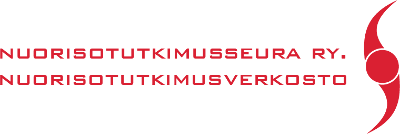Nuorisotutkimuspäivät kokoavat yhteen ajankohtaisen tutkimuksen ja nuorisoalan keskeiset toimijat. Ne tarjoavat tilaisuuden verkostoitumiseen, nuorisotutkimuksen kehittämiseen, tieteidenväliseen vuoropuheluun ja tutkimustulosten esittelyyn. Päiviä on järjestetty vuodesta 2002 lähtien. Päivät on suunnattu tutkijoille, opiskelijoille sekä nuorisoalan ammattilaisille.
Vuonna 2024 Nuorisotutkimuspäiviä ei poikkeuksellisesti järjestetä Tampereella 12.-14.6.2024 järjestettävän Nordic Youth Research Symposiumin (NYRIS) vuoksi. Nuorisotutkimusseura on yksi NYRIS2024-konferenssin (Vieraile ulkoisella sivustolla. Linkki avautuu uuteen välilehteen.) järjestäjistä.
Seuraavat Nuorisotutkimuspäivät järjestetään marraskuussa 2025.
Aiemmin järjestetyt Nuorisotutkimuspäivät
- XXII Nuorisotutkimuspäivät 2023 – Toivon moninaisuus, Helsinki 8.-9.11.2023
- XXI Nuorisotutkimuspäivät 2022 – On-line ja off-line: Digitalisaatio, ”digismi” ja tuoreen kosketuksen sukupolvi. Joensuu 9.-10.11.2022
- XX Nuorisotutkimuspäivät 2021 – Käännekohtia - nuoret yhteiskunnallisissa muutoksissa. Helsinki, 4.-5.11.2021.
- XIX Nuorisotutkimuspäivät 2020 – 2020-luvun uusi nuoriso. Virtuaalinen seminaari. Tampere. 5.-6.11.2020.
- XVIII Nuorisotutkimuspäivät 2019 – Nuoret ja kansalaisuus: Tekoja, hiljaisuuksia ja tulkintoja, Mikkeli 7.-8.11.2019
- XVII Annual Conference of Youth Studies 2018 – Youth Cultures and Well-Being, Helsinki , November 5.–6, 2018
- XVI Nuorisotutkimuspäivät 2017 – Nuorisotutkimuksen hiljaisuudet, Oulu 2.-3.11.2017
- XV Nuorisotutkimuspäivät 2016 – Global Responsibility in Youth Research, Helsinki 7.-8.11.2016
- XIV Nuorisotutkimuspäivät 2015 – Nuorisotyön ja tutkimuksen rajapinnoilla, Tampere 12.-13.11.2015
- XIII Nuorisotutkimuspäivät 2014 – Nuoruuden tilat ja tilojen nuoret, Joensuu 6.–7.11.2014
- XII Nuorisotutkimuspäivät 2013 – Sukupolvet, talous ja oikeudenmukaisuus, Helsinki. 6.11.2013
- XI Nuorisotutkimuspäivät 2012 – Lapsuutta ja nuoruutta tulkitsemassa, 15-16.11.2012
- X Nuorisotutkimuspäivät, Helsinki 15.11.2011
- IX Nuorisotutkimuspäivät, Helsinki 9.–10.11.2010
- VIII Nuorisotutkimuspäivät, Helsinki 9.–10.11.2009
- 7th Youth Research Days and 5th ETMU Days, Helsinki October 23–24, 2008
- VI Nuorisotutkimuspäivät, Helsinki 7.11.2007
- V Nuorisotutkimuspäivät, Helsinki 20.10.2006
- 4th Annual Conference of Finnish Youth Research Society, 2.–4.11.2005
- III Nuorisotutkimuspäivät, 4.–5.11.2004
- II Nuorisotutkimuksen päivä, 6.11.2003
- I Nuorisotutkimuksen päivä, 21.11.2002
